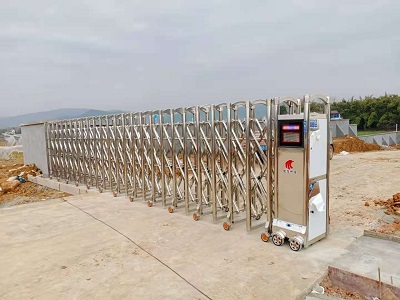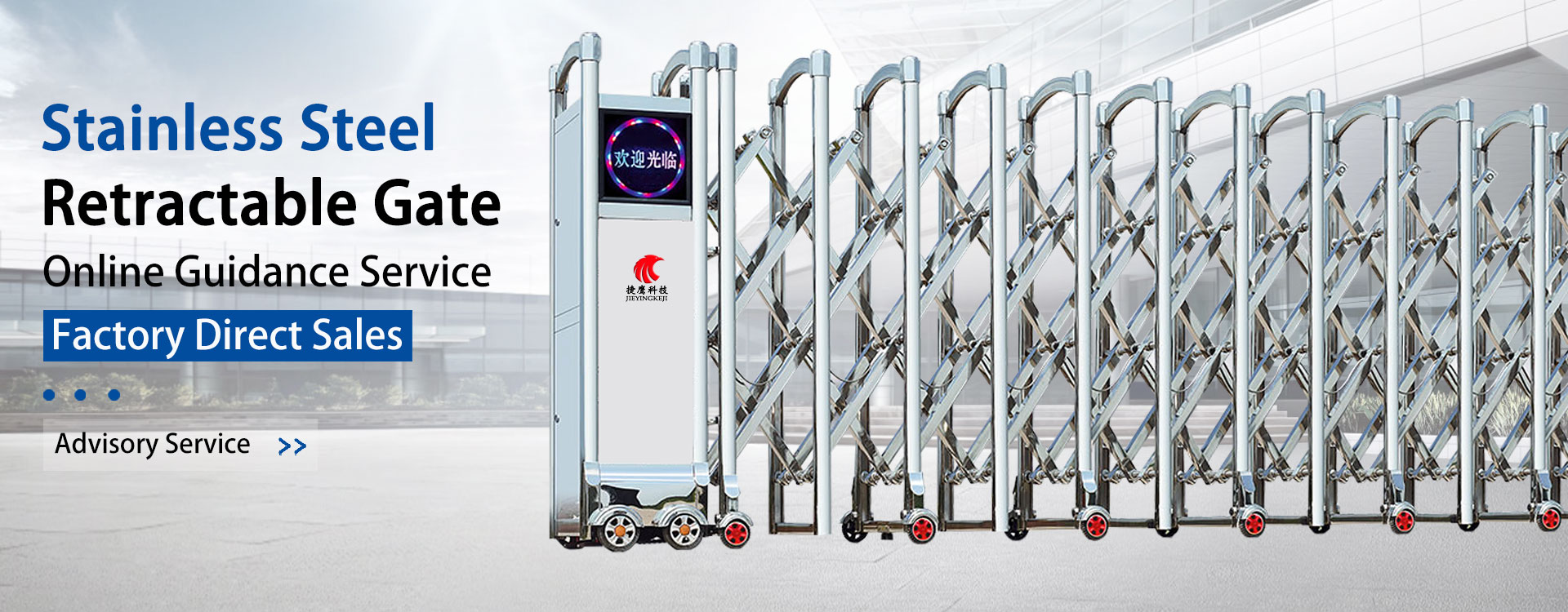The rusting of electric doors is not because the products are made of inferior materials, but because the electric doors are generally used in outdoor environment, even the best stainless steel will be slowly rusted off.
It is generally believed that stainless steel is not rusty, rust is not stainless steel, it may be steel problems. In fact, this is a one-sided wrong view of the lack of understanding of stainless steel. Stainless steel will rust under certain conditions. Stainless steel has the ability to resist atmospheric oxidation, that is, rust resistance, but also has the ability to resist corrosion in the medium containing acid, alkali and salt, that is, corrosion resistance. However, the corrosion resistance of the steel varies with its chemical composition, additive state, service condition and environmental medium type. For example, 304 steel pipe has excellent corrosion resistance in dry and clean atmosphere, but when it is moved to the coastal area, it will soon rust in the sea fog containing a lot of salt, while 316 steel pipe performs well. Therefore, not any kind of stainless steel, in any environment can be resistant to corrosion, rust, stainless steel electric door does not rule out this situation.
Stainless steel is formed on the surface of a very thin and solid fine stable chromium rich oxide film (protective film), to prevent oxygen atoms continue to penetrate, continue to oxidize, and obtain the ability of corrosion resistance. Once there is some reason, the film is constantly damaged, oxygen atoms in the air or liquid will continue to penetrate, or iron atoms in the metal will continue to separate out, forming loose iron oxide, and the metal surface will be constantly corroded. There are many forms of destruction of the surface film.

1. There are dust containing other metal elements or attachments of dissimilar metal particles on the surface of stainless steel. In humid air, the condensation water between the attachments and stainless steel connects them into a micro battery, causing electrochemical reaction and damaging the protective film, which is called electrochemical corrosion.
2. In the presence of water and oxygen, organic acids (such as melon, vegetable, noodle soup, phlegm, etc.) adhere to the surface of stainless steel, which will corrode the metal surface for a long time.
3. Stainless steel surface adhesion contains acid, alkali, salt substances (such as decoration wall of alkali water, lime water splash), causing local corrosion.
4. In the polluted air (such as the atmosphere containing a lot of sulfide, carbon oxide and nitrogen oxide), when meeting with condensate water, sulfuric acid, nitric acid and acetic acid are formed. After explaining some of the above situations, I believe that the majority of consumers know the cause of corrosion caused by the damage of stainless steel surface protective film. Therefore, in order to ensure that the metal surface is bright and not corroded, we suggest that:
(1) The surface of stainless steel electric door must be wiped frequently. When wiping, do not use a cloth dipped in acid or alkaline, and use a towel with good softness.
(2) When our stainless steel electric telescopic door leaves the factory, the head is equipped with white derusting powder. Dip a little derusting powder on the towel, and then wipe the surface of the material. It can not only remove the attachment on the surface of the material, but also make the material more clear and shiny.
(3) When wiping the electric door body, you can also apply the rust remover sold in the market on the rusty parts or the parts with more attachments, and then wipe them. The attachments or rust spots on the materials can be removed, and a protective mold can be formed on the surface of the materials


